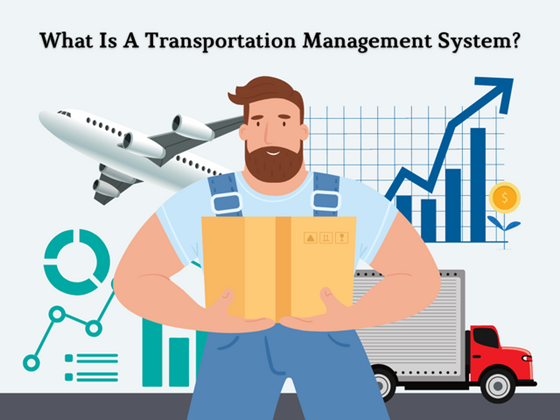A company’s success depends on its capacity to integrate and use technology effectively. Therefore, managing shipments and transportation are crucial to a business company. A transportation management system (TMS) will help you keep track of your freight and carriers, and you could also maintain visibility of the occurring procedures.
Technology is crucial for productivity, pricing, service, and a competitive advantage for businesses as it keeps advancing. Here are its simplified definitions to understand what a transportation management system is.
What Is A Transportation Management System?
1. It makes commercial success for a business company.
Since the first astute trader loaded trade items onto a donkey cart and plotted the quickest and safest routes to nearby towns, an effective transportation management system has been a crucial element of commercial success. Even though it is considerably more complicated now, the transportation management system is essential to the success of many firms.
Teams in charge of logistics and supply chain management have benefited from increased technology spending as businesses have realised that supply chain excellence is essential to creating a stronger future.
2. Transportation management system, or TMS system, is a platform that makes shipping easier.
Transportation management system is a branch of supply chain management that deals specifically with transportation options. With a TMS system, shippers may automate their current procedures and gain insightful data that will help them save time and money on upcoming shipments.
3. Transportation management system optimises and enhances business operations efficiently.
Anyone who regularly transfers freight, including distribution firms, e-commerce businesses, and other organisations, is aware of numerous moving pieces in the shipping process, both physically and figuratively. Those who move freight are constantly seeking ways to optimise spending and enhance operations, from bidding to delivery. Shippers now have a way to accomplish this thanks to the transportation management system (TMS).
4. Transportation Management System is a software system.
Software called the transportation management system (TMS) aids businesses in managing logistics related to the transfer of physical commodities by land, air, sea, or a combination of modes of transportation.
The logistics of a transportation management system software is a component of the more extensive supply chain management system.
A TMS system efficiently ensures prompt delivery of goods by streamlining loads and delivery routes, monitoring freight on local and international routes, and automating previously time-consuming tasks like trade compliance paperwork and freight billing. Both enterprises and end users get cost reductions because of the TMS system.
Companies utilise the transportation management system (TMS) as software solutions to automate many of the duties associated with running their transportation operations and with helping with the regular operations related to moving their resources, goods, and personnel.
Using real-time data by many of these systems makes it much simpler for businesses to handle transportation-related supply chain and logistical tasks efficiently. Real-time data usage can potentially result in considerable time and money savings.
5. A TMS system ensures the prompt delivery of freight and other items and offers visibility into ongoing transportation operations, trade compliance information, and documentation.
In addition to streamlining the shipping process, a transportation management system can help firms manage and optimise all aspects of their transportation operations, whether they involve land, air, or sea transportation.
Here are the primary responsibilities of an efficient transportation management system in a business company.
3 Responsibilities Of Transportation Management System

1. Planning
Based on cost, efficiency, and distance, a transportation management platform assists the company in choosing the best carrier and mode of shipment, including maximising multi-leg carrier routes. With global trade management functionality, a powerful TMS system may offer visibility into every stage of the supply chain and information on trade, tariffs, and any potential delays brought on by customs and other trade restrictions.
2. Execution
Systems for managing transportation can match loads and communicate with carriers, record and track shipments, and help with freight billing and settlement, among many other capabilities. Some cutting-edge TMS system solutions offer track and trace services, allowing for real-time information interchange between carriers, distributors, warehouses, and clients.
The transportation management software might also be able to handle complicated international logistics, including providing accurate import and export documentation and ensuring that shipments comply with trade regulations.
3. Optimization
The capacity to analyse and track performance through reports, dashboards, analytics, and transportation intelligence is typically one of the TMS system optimization capabilities, which will significantly improve and help your business shipments and transportation. There is also a cloud based transport management system, which is a solution you can save and is accessible in the cloud.
You can access the cloud based transportation management system from any location with an internet connection. Through these access points and the cloud itself, it logs data continuously. It gives the businesses more excellent economic justifications for implementation.
Discover its benefits as you now know what the transportation management system is and its corresponding responsibilities.
4 Benefits Of Transportation Management System

1. Technological capabilities for the success of a business.
The shipper will have the technology necessary to make routing decisions based on quotations, transit time, and carrier mix with the help of a transportation management system. The booking procedure will be simplified and free of needless tension thanks to this leading site for a quotation.
2. It simplifies the process.
A TMS system can assist in streamlining the carrier selection procedure by enabling you to assess the shipment’s contents and match it with a network carrier. You may quickly review previous shipments and swiftly compare similar loads to the suitable carriers by controlling the entire process in one location.
3. Efficiently tracks cargo.
With a TMS system, you can keep tabs on travel cargo and even get alerts for unforeseen delays or transit exceptions from a single spot. It is a fact that human errors are beyond your control; however, a TMS system will help you identify when delays are happening and why.
4. Helps you gain evident and practical business insights.
A dependable transportation management platform will provide comprehensive insights and reporting options. With a TMS system, data will be centralised and specialised reports can be made to examine issues like differences between rates and final invoices.
If you are looking for experts that offer an efficient transportation management system, don’t hesitate to contact Cargobase for their excellent services and more information.




